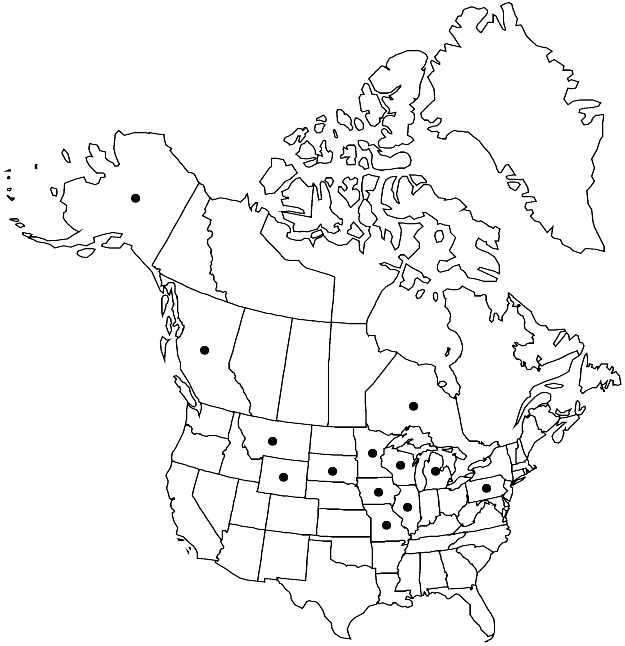Hygroamblystegium varium subsp. noterophilum
J. Bryol. 31: 130. 2009.
Plants extremely large. Stems to 15 cm; central strand present. Stem-leaves 1.2–2.4 × 0.3–1 mm, lamina sometimes partially 2-stratose, especially at base near costa; margins entire or nearly so; costa excurrent, 110–140 µm wide at base; medial laminal cells 20–45 × 6–10 µm.
Habitat: Oligotrophic, calcareous spring areas
Elevation: low to high elevations (0-2500 m)
Distribution

B.C., Ont., Alaska, Ill., Iowa, Mich., Minn., Mo., Mont., Pa., S.Dak., Wis., Wyo.
Discussion
Subspecies noterophilum is morphologically characterized by its large size, broad, excurrent costa ending in a stout point, and partly 2-stratose lamina. This taxon is restricted to areas of oligotrophic, calcareous springs. The leaves of submerged stems are frequently quite different in shape from those of emergent stems and branches, suggesting that at least some of the morphological characteristics may be altered depending on water availability. Current phylogenetic analyses failed to demonstrate the genetic integrity of the taxon. The morphology of populations from calcareous springs is typically very different from that of terrestrial or subaquatic populations in many bryophyte species. For example, in Cratoneuron filicinum (Hedwig) Spruce, such expressions are so different that they were previously interpreted as Hygroamblystegium tenax var. spinifolium (Schimper) Jennings. Therefore, pending additional evidence, subsp. noterophilum is treated here as a subspecies of H. varium.
Selected References
None.
Lower Taxa
"narrower" is not a number.